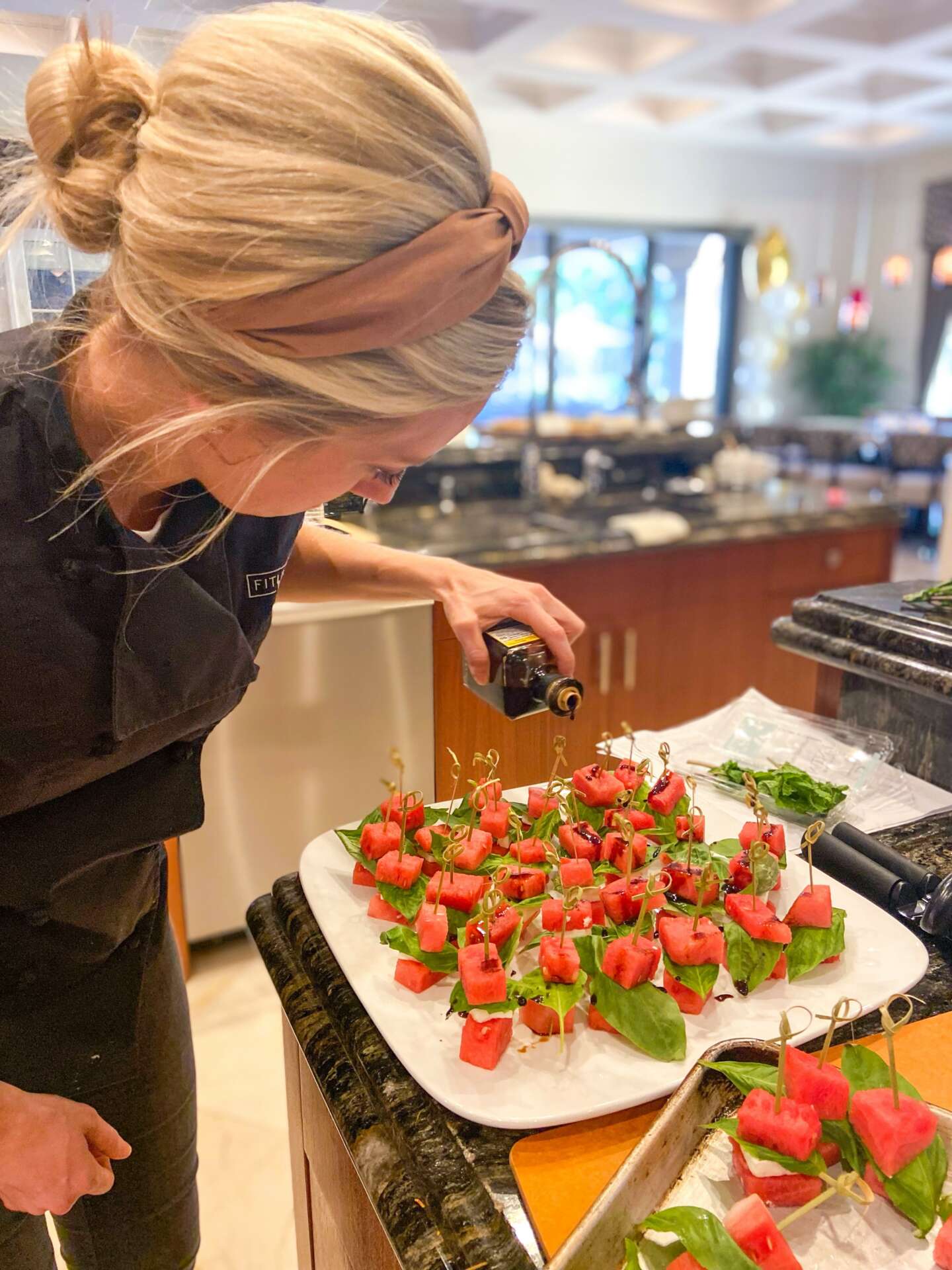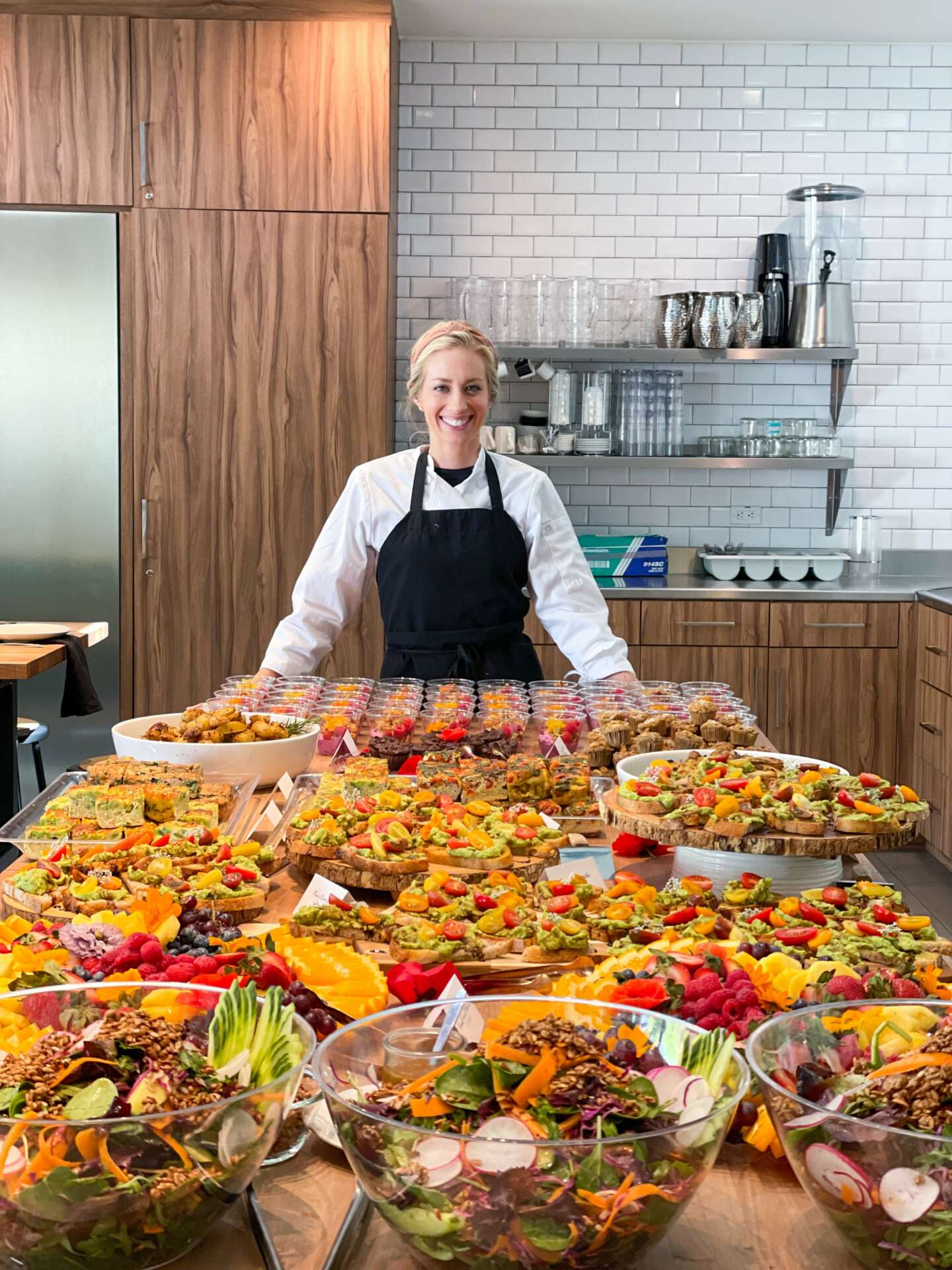We caught up with the brilliant and insightful Carly Paige a few weeks ago and have shared our conversation below.
Hi Carly, thanks for joining us today. Before we get into specifics, let’s talk about success more generally. What do you think it takes to be successful?
When I look back at where I started in my company, where I’m at now, and where I’m headed, there are several success qualifiers that come to mind. One is being open to new and different opportunities. When I left my corporate job and shifted my career path, I had a vision for what this might look like. It turns out, the business I have today is quite different than this, and I realized that I wasn’t allowing myself to dream beyond my limiting beliefs of what I thought I was capable of. Saying “yes” to things that pushed me out of my comfort zone helped me break through this. Another key component to success is listening to understand what the market/target market needs, versus what you think they should have. Identifying those pain points, focusing on the customer/client, and coming up with a solution that is aligned with the impact you want will go a long way. The third thing I’ll say is that success doesn’t happen overnight. Sometimes, it’s hard to believe this when it seems like everyone else is achieving it this way, but this is a false perception. Success takes a lot of hard work, perseverance, and a willingness to look inward and do the work along the way.



Awesome – so before we get into the rest of our questions, can you briefly introduce yourself to our readers.
Since I can remember, I’ve always loved cooking and studying holistic nutrition. Being in the kitchen was a way to connect with loved ones and create memories based around an activity that everyone could enjoy. Friends and family would come to me asking me for healthy menu plans, and I remember feeling this overwhelming desire to want to support them in this way. But how did I turn this into a career, or was it just going to be a side passion? I wasn’t aware of any path available to me that would encompass these passions through a sustainable career. I worked in a corporate marketing job at a local hospital for four years, only to realize this pull towards preventative (versus reactive) healthcare wasn’t going to go away. So I quit my job, enrolled in a health coaching program and culinary program, and set out to create my own path. When I did this, I experienced for the first time the power that food truly has to heal the body. I have a history of confidence-crushing acne and anxiety, and I noticed that when I started to shift my diet, it had a direct impact on how I felt and functioned throughout the day. These changes lead to increased mindfulness around other areas of my life, creating a ripple effect in my own personal transformation. Having experienced this, I wanted to then share it with the world.
Six years after landing my first health coaching client, I often look back and am overwhelmed with gratitude for the opportunities I’ve had and the career path that I’ve designed for myself. In everything I do, my goal is to show people that healthy doesn’t have to be hard, and can always be delicious. It’s about getting back to the basics. Whole, unprocessed foods and simple swaps that can be made for a more nutritious, but still delicious, plate. I work to educate people through my website, Instagram, cookbook (Simply Swapped Everyday), and corporate workshops. Three years ago, I started a local private chef company, FitLiving Eats Winter Park. We offer customized meal prep services, boutique catering, and cooking class experiences. This customized approach to food prep really doesn’t exist in the surrounding Orlando areas, so we’ve been able to solve the challenge of getting healthy, homemade food on the table in way that is fresh, tastes good, and caters to individual dietary needs. Many of our clients have various health concerns or conditions, and/or food allergies. We’ve seen clients’ cholesterol numbers drop within a matter of weeks, inflammatory markers become virtually non-existent, and cravings start to shift towards a lifestyle that helps them feel their best. All of this is done through a plant-powered approach that is adapted based on the needs of the client.
What I hope to inspire in people is a sense of confidence in the kitchen, in their health, and ultimately, how they show up in the world. By using mindfulness as a tool (both in what’s on our plate and off), we can work to overcome our biggest insecurities and challenges, and find a way to thrive, not just survive.
Any stories or insights that might help us understand how you’ve built such a strong reputation?
I believe that my reputation has been built on consistency, excellence, and authenticity. It’s important for me to be consistently intentional about showing up in the community. This could be attending local events, supporting other entrepreneurs, making time to check in with clients, or even just hanging out a local coffee shop knowing the likelihood of running into someone that I know. In every job opportunity, I try to go above and beyond a clients’ expectations from start to finish through communication, how I present myself professionally, and in the experience that I am creating for them. It’s the little details that can leave a lasting impression and go a long way in making clients feel valued. At the end of the day, it’s my goal to show up authentically in how I engage with clients, focusing just as much on how I’m making them feel as I am on that next sale. Because of this, many of our clients feel as though me and my team are an extension of their family, and that we can be relied on when looking to have their culinary needs met.




Any advice for managing a team?
Let me first say that I never really dreamt of managing a team when I first started my business. Since creating the local service arm of my business, I realized that this wasn’t something I could do alone. I now have four full-time employees and two part-time employees. I am constantly evolving in my leadership skills, but there are a few things I’ve learned so far along the way. Team culture is everything. In the culinary world, the kitchen can often be a cut-throat, demoralizing experience, and I’ve worked really hard to create the opposite. I have a zero-tolerance policy for any kind of disrespect, or behavior that works against a team-building approach. Creating opportunities for socialization among the team outside of work hours helps support this kind of connected culture. I think it’s important to show your team that you’re willing to get in the trenches and do the work that you don’t want to do. Adopting regular check ins to engage with individual team members is a great way to make them feel valued and heard. These check ins can create a safe space for you to provide feedback (positive and constructive) to them, and for them to have the same opportunity to provide feedback on your leadership. I think it’s important to recognize that anything left unsaid is at risk for misinterpretation. I’m not naturally one to lean into direct or corrective feedback, but I’ve learned that my team members crave this from me to feel confident that they are meeting my expectations. I think sometimes this kind of feedback can be interpreted as creating a “negative” experience, when actually, it has the power to create the opposite, resulting in increased respect, trust, and confidence for the whole team.
Contact Info:
- Website: fitlivingeats.com
- Instagram: instagram.com/fitlivingeats
- Linkedin: https://www.linkedin.com/in/carlypaige/


